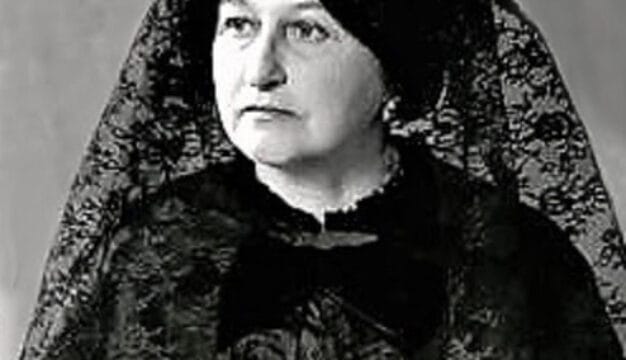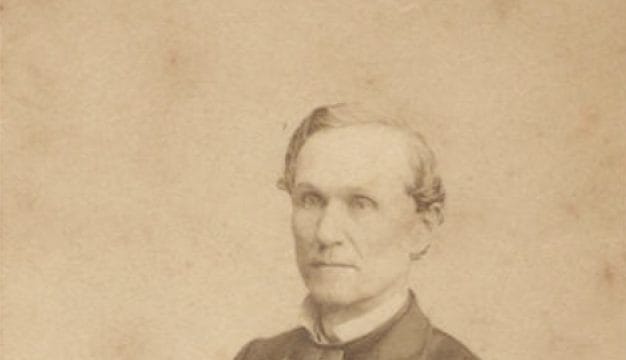Wilson Pickett
Singer Wilson Pickett (1941-2006) was renowned as an energetic and intense performer. He gained international fame with such hits as “Land of 1,000 Dances” and “In the Midnight Hour” and became one of the biggest black music stars of the 1960s and 1970s. A Rock and Roll Hall of Fame inductee, Pickett remains one of the most unique and significant artists of the soul-music era.
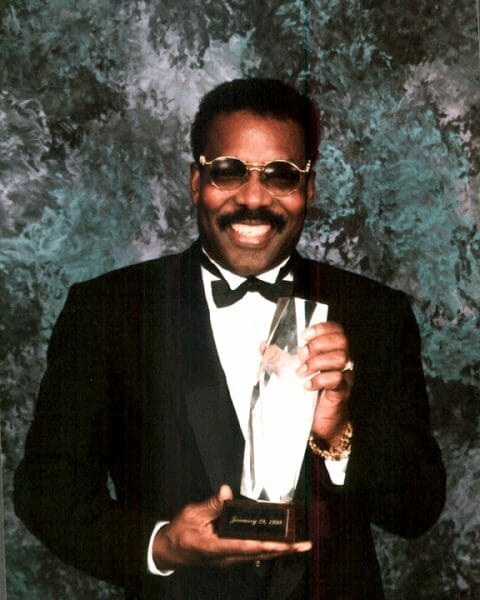 Wilson Pickett, 1999
Wilson Pickett was born in Prattville, Autauga County, on March 18, 1941, one of 11 children who grew up working on the cotton farm of their sharecropper parents. While picking cotton in the fields, Pickett became fascinated by the “moan,” a vocal tradition in African American culture that stretches back to early spirituals and became central to gospel, rhythm and blues (R&B) and soul music. He sang at his local Baptist church, but even in childhood, Pickett—who became known as “The Wicked Pickett” for much of his career—displayed a wild streak that would later bring him great notoriety. He dared to quarrel with the white field boss who supervised his family’s farm, and both his preacher grandfather and his mother (whom Pickett described as “the baddest woman in my book”) repeatedly subjected Pickett to beatings.
Wilson Pickett, 1999
Wilson Pickett was born in Prattville, Autauga County, on March 18, 1941, one of 11 children who grew up working on the cotton farm of their sharecropper parents. While picking cotton in the fields, Pickett became fascinated by the “moan,” a vocal tradition in African American culture that stretches back to early spirituals and became central to gospel, rhythm and blues (R&B) and soul music. He sang at his local Baptist church, but even in childhood, Pickett—who became known as “The Wicked Pickett” for much of his career—displayed a wild streak that would later bring him great notoriety. He dared to quarrel with the white field boss who supervised his family’s farm, and both his preacher grandfather and his mother (whom Pickett described as “the baddest woman in my book”) repeatedly subjected Pickett to beatings.
In 1955, Pickett moved to Detroit with his father to escape his violent mother, whom his father had divorced. It was there that Pickett began his music career, singing with a gospel quartet called the Violinaires, with whom he recorded a few singles for Chicago’s Chess Records, and touring with many gospel stars. Despite the success, Pickett felt constrained by the strict standards of the gospel circuit. In the hope of linking his love of the moan style of singing with more secular material, he joined the Falcons in 1959. Founded in 1956, the Falcons’ membership at points included several other future soul stars, including Mack Rice and Eddie Floyd. The group’s singles are considered seminal contributions to the developing soul genre, which combined the smooth textures of 1950s R&B with a growing emphasis on its roots in African American gospel and blues. This blend can be heard in the Falcons’ hits “You’re So Fine” (1959) and “I Found a Love” (1962), on which Pickett sings lead. His remarkable voice and charismatic live performances led to Pickett’s 1963 departure from the Falcons. He then recorded a few singles for the small Double L Records label, until Atlantic—impressed with a Pickett demo recording—bought out his contract.
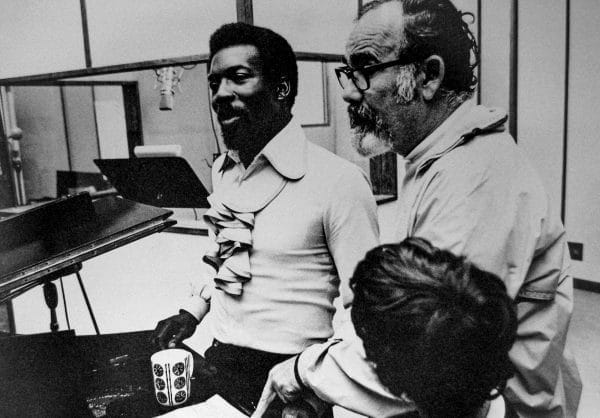 Wilson Pickett and Jerry Wexler
Atlantic producer and executive Jerry Wexler took a particular liking to Pickett’s voice and style (which Pickett and others called “cornbread”). Wexler decided to first record Pickett at famed Stax Records studios in Memphis. Built around the spare, funky rhythms of house band Booker T. and the MGs, the “Stax sound” became the basis of hits by many soul and R&B stars, including Otis Redding, Sam & Dave, and Carla Thomas. Pickett arrived in 1965 and recorded a series of singles that defined his “hard soul” sound. Passionate cuts like “In The Midnight Hour” and “634-5789” synthesized the gospel roots of Pickett’s vocals with the strutting, layered rhythms of the Memphis musicians and established him as a star, topping the R&B charts and crossing over to the pop charts.
Wilson Pickett and Jerry Wexler
Atlantic producer and executive Jerry Wexler took a particular liking to Pickett’s voice and style (which Pickett and others called “cornbread”). Wexler decided to first record Pickett at famed Stax Records studios in Memphis. Built around the spare, funky rhythms of house band Booker T. and the MGs, the “Stax sound” became the basis of hits by many soul and R&B stars, including Otis Redding, Sam & Dave, and Carla Thomas. Pickett arrived in 1965 and recorded a series of singles that defined his “hard soul” sound. Passionate cuts like “In The Midnight Hour” and “634-5789” synthesized the gospel roots of Pickett’s vocals with the strutting, layered rhythms of the Memphis musicians and established him as a star, topping the R&B charts and crossing over to the pop charts.
Ironically, Pickett’s success is often blamed for a split between Wexler and the Stax leadership, a conflict that led to another fortuitous creative alliance for Atlantic’s soul icon. In early 1966, Wexler took Pickett to FAME Studios in the small Alabama community of Muscle Shoals, which had built a reputation during the preceding five years as an efficient and versatile source of hit records, particularly those in the “southern soul” genre. Despite FAME’s funky reputation, Pickett expressed ambivalence about returning to his home state, which still struggled with harsh racial intolerance. Pickett grew even more skeptical when he learned that FAME producer Rick Hall and the core backing musicians (known as the Muscle Shoals Rhythm Section) were white. Out of respect for Jerry Wexler however, Pickett agreed to record at FAME Studios, and his initial reluctance soon turned to creative joy, as he and the Muscle Shoals musicians recorded celebratory, hard-driving hits such as “Land Of A Thousand Dances” and “Mustang Sally.” For the next several years, Pickett recorded in a variety of “southern soul” locales, including Muscle Shoals, Memphis and Miami, and recorded hits ranging from the reflective “I’m In Love” (written by friend and fellow soul star Bobby Womack) to a distinctive cover of the Beatles’ “Hey Jude.” In 1970, Pickett recorded two huge singles—”Engine Number Nine” and “Don’t Let the Green Grass Fool You”—at Sigma Sound in Philadelphia, mixing his gospel moan with the stylish, sophisticated orchestrations of producers and writers Kenny Gamble and Leon Huff, who crafted the hugely popular “Philadelphia sound” of the 1970s.
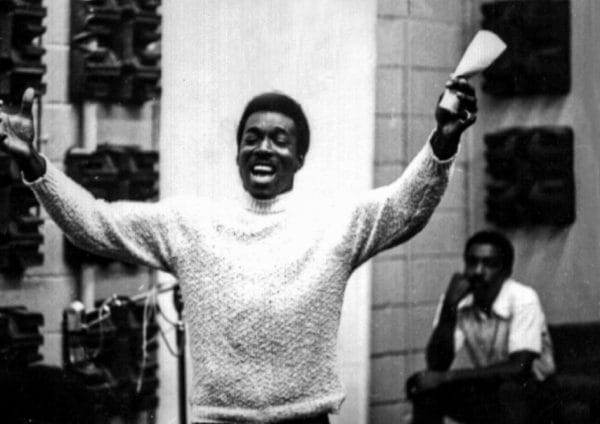 Wilson Pickett at FAME
Pickett returned to Muscle Shoals to record a few last hits, but by 1973 his days as a recording superstar were over. He continued to tour, and his live shows were legendary, imbued with the bold self-confidence that Pickett described in assertive anthems such as “A Man And A Half.” He recorded periodically during the late 1970s but also faced numerous legal, financial, and drug-related problems. He was inducted into the Rock & Roll Hall of Fame in 1991. He toured throughout the 1990s and released a comeback album, It’s Harder Now, in 1999; although critics hailed it as a return to form, it failed to make commercial impact. That same year, he was inducted into the Alabama Music Hall of Fame. Featured in the 2003 soul documentary Only The Strong Survive, Pickett continued to perform even while dogged by health problems. Hospitalized repeatedly in 2005 and 2006, he died of a heart attack in Ashburn, Virginia, on January 19, 2006, leaving partner Gail Webb and their four children. Pickett’s funeral included a memorable eulogy by Richard “Little Richard” Penniman, who remembered the great contributions that his friend and colleague made to American music. Pickett’s songs remain radio staples, standard material for live cover bands, and a popular source of hip-hop samples. He represents soul music at its proudest and most unabashed, an explosive genre that provided perfect cultural complement to and soundtrack for the civil rights and black power movements of the 1960s and 1970s.
Wilson Pickett at FAME
Pickett returned to Muscle Shoals to record a few last hits, but by 1973 his days as a recording superstar were over. He continued to tour, and his live shows were legendary, imbued with the bold self-confidence that Pickett described in assertive anthems such as “A Man And A Half.” He recorded periodically during the late 1970s but also faced numerous legal, financial, and drug-related problems. He was inducted into the Rock & Roll Hall of Fame in 1991. He toured throughout the 1990s and released a comeback album, It’s Harder Now, in 1999; although critics hailed it as a return to form, it failed to make commercial impact. That same year, he was inducted into the Alabama Music Hall of Fame. Featured in the 2003 soul documentary Only The Strong Survive, Pickett continued to perform even while dogged by health problems. Hospitalized repeatedly in 2005 and 2006, he died of a heart attack in Ashburn, Virginia, on January 19, 2006, leaving partner Gail Webb and their four children. Pickett’s funeral included a memorable eulogy by Richard “Little Richard” Penniman, who remembered the great contributions that his friend and colleague made to American music. Pickett’s songs remain radio staples, standard material for live cover bands, and a popular source of hip-hop samples. He represents soul music at its proudest and most unabashed, an explosive genre that provided perfect cultural complement to and soundtrack for the civil rights and black power movements of the 1960s and 1970s.

